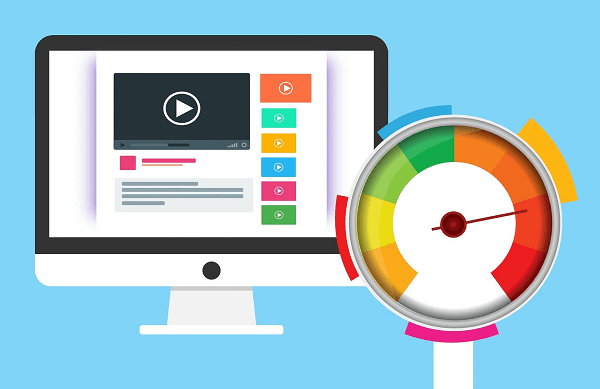Does Website Speed Really Matter?
We’ve come a long way since the days of dial-up internet. Back then, it wasn’t unexpected to wait minutes for a webpage to load. These days, there are still a few dial-up users, largely due to geographic constraints (about 0.2% of internet connections in the US.) But the vast majority of us use some form of high-speed internet.
And that’s exactly what we expect—high speed.
At this point, consumers aren’t interested in waiting for your website to load. In fact, they're unwilling to wait. According to one study, 53% of consumers will abandon your website if it takes longer than three seconds to load. That’s more than half your website visitors gone because your site didn’t load fast enough.
So we’re left with 47% of your potential customers who will stick around the few extra seconds while your site loads. What happens next? If those visitors are met with a sluggish website that doesn’t respond well to scrolling or takes endless seconds moving from page to page, you can bet they won’t visit your site again. Worse yet, they may come away with negative feelings toward your brand.
The short answer to the question, “Does website speed really matter?” is a resounding YES.
Your Customer’s Experience is Everything
In the digital age, consumers expect to have the power of selection at their fingertips—quite literally. A slow or clunky website is a sure-fire way to drive customers away from your business and straight to one of your competitors. This is especially true for local businesses, where reputation and brand is so very important. Consumers naturally make a connection between website speed and usability with professionalism and trust.
Show potential customers your business is trustworthy and does great work by presenting a fast and easy to navigate website.
Don’t Forget About Ranking
As a local business owner, ranking in local searches is immensely important to your success. Did you know your website speed can help (or hurt) your ranking? It’s true. Page speed is a known Google ranking factor.
While site speed is just one of the many aspects of site ranking—and a fast site alone won’t boost you to the top of the search results—it is something you can easily monitor and address.
How Can You Speed Up Your Site?
There are many technical ways you can speed up your website’s performance. But for those less-than-tech savvy folks who are looking for help, there are a few things you can do, too.
Site Design
The simplest first step is taking a hard look at your website. Check out its design and ease of use. If your site is packed full of text and images from margin to margin with little white space, there’s a good chance it’s not a great customer experience and all those design elements are probably slowing your load speed.
Clean up your design. Get rid of extraneous text or images; select your best photos to display and consider packing the others away in a project gallery. Don’t be afraid to include white space (which doesn’t have to be white, by the way.) The best website designs always make good use of white space because it gives our brains a tiny reprieve and encourages us to look further and read more.
Mobile Optimization
Considering the majority of internet traffic originates from a mobile device, it only makes sense that your website is optimized for mobile viewing. If it’s not, your site may be slow to load on a mobile device and potential customers are going to have a hard time navigating the pages.
The easiest way to optimize your site for mobile viewing is by using a website builder that does it for you automatically. And if you’re working with an outside design team, be sure they know how important mobile optimization is for your business’s site. Here at Locallogy, optimizing our client’s websites for mobile devices is not a special request, it’s a standard part of our design services. Be sure your design team takes it just as seriously.
The Bottom Line
Your website’s speed and performance are crucial to gaining (and retaining) customers. The statistics make it clear. If your website is too slow, your customers will click away, probably to one of your competitors' sites.
Check your website’s speed on a regular basis. Ensure your design and mobile compatibility are helping your site’s performance and not hurting it.
Get the Latest Content in Your Inbox
Want to be the first to know about new content? Sign up to get our weekly blog posts sent to your email!







